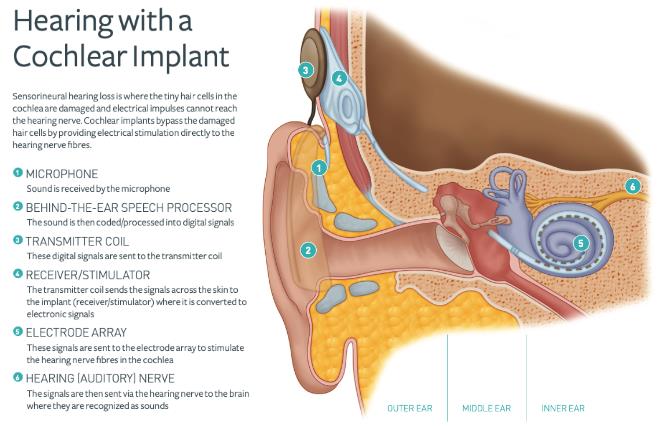Departures from Social Norms
When we got to the LGBTQIA+ readings, I was pleasantly surprised to find that the readings were about gender non-conformity, a Sapphic woman, and intersexed people. These are categories that are often overlooked or marginalized even within the community, so I appreciated the recognition of these experiences. Out of these, the demographic which suffers a very unique set of prejudices and adversities is that of intersexed people. The world glosses over their existence and they are treated as lesser if they do not make an effort to fit into the binary system we rely so heavily upon. Even worse, they are often treated as if they are deformed from the moment they are born, subject to genital mutilation as children, and not allowed to know the truth about themselves and their bodies (Chase).
Cheryl Chase's story and those of the other intersexed people she met are tales of caution about the importance of medical professionals in treatment of children who are born outside of social norms. They remind me of a book I read for ASL, called Deaf Again. It is an autobiography written by Mark Drolsbaugh, a man born hearing to deaf parents. He began losing his hearing in elementary school and his hearing grandparents were devastated. This led him to feel as if he had disappointed them, their panic at the prospect of him being deaf instilling the belief in him that he was inferior to hearing people. This notion that hearing people are superior to those who are deaf or hard of hearing is called audism and it has been very pervasive in the sectors of medicine and education.
In education, audism manifests itself in the form of oralism, which is "the idea that deaf individuals should be educated through the means of lip reading, mimicking mouth shapes, and practicing certain breathing patterns as well as vocal exercises that were meant to help deaf individuals produce oral language." ("What is Oralism?"). The goal of this method of education is to assimilate deaf children into hearing culture and, in essence, make their deafness invisible. This parallels the assigning of gender to intersexed babies at birth. Intersexed people lie outside of the 'normal' binary system just as deaf people lie outside of the 'normal' hearing population. Children in both areas are actively pushed to be more like their gender binary-conforming peers and hearing peers, respectively. Both intersexed and Deaf people have claimed that these facets of themselves are integral to their identity and community and the way they were forced to suppress them has negatively affected their development in those communities (Chase, Drolsbaugh).
 Fig. 1. "Hearing with a Cochlear Implant." University of Southampton Auditory Implant Service, https://ais.southampton.ac.uk/cochlear-implant/.
Fig. 1. "Hearing with a Cochlear Implant." University of Southampton Auditory Implant Service, https://ais.southampton.ac.uk/cochlear-implant/. In terms of medical treatment, Cochlear Implants (see fig.1) are lauded as miracles of modern technology (Cooper). These devices allow for greatly improved hearing in people with certain types of deafness and their invention alarmed many Deaf people. Deaf people, with a capital 'D' see deafness as "a cultural identity that should be respected and celebrated" and they have expressed the concern that Cochlear Implants imply that deafness is instead a "medical disability that should be cured" (Cooper). By this logic, cochlear implants deprive a deaf/hard of hearing child of the chance to be fully immersed in Deaf culture. Intersexed people experience a similar sequence of events through the practice of genital mutilation. Genital surgeries on intersexed youth imply that their bodies were flawed from birth, when, in reality their bodies are perfectly fine the way they are (despite not fitting neatly into the gender binary). Being deaf/HoH and being intersex are just two of infinitely many different human experiences and they do not need to be healed or fixed.
One of the common arguments against the parental right to refuse cochlear implants is that deaf adults have lower average reading and income levels than their hearing peers (Byrd et al.). This, again, implies that deaf people are at a developmental disadvantage because they are deaf, but this may not be the case. A large portion of deaf adults did not receive high quality education when they were younger. Many of them were taught how to speak and read lips so that they could attend school with hearing children, even though they could not hear the instruction or properly participate in class, which would obviously affect the rate at which one learns. When parents, educators, and medical professionals realized this type of schooling wasn't working, they would send them to residential schools for the deaf, which were not well funded and struggled to stay open. Many of the students there were behind their grade level and had deficits in language (sometimes in English, sometimes in ASL, sometimes in both) and it proved difficult to make up for all the lost time in their education (Drolsbaugh). This is the reason many deaf adults have deficits in these areas and is very important context that often goes unmentioned.
The point is, socially constructed barriers are what make intersexed and deaf people 'other'. They are people with unique experiences in the same way that we all are. Diversity is valuable in all its forms and pushing intersex people to conform to cis-normative roles is no more effective or necessary than forcing deaf people into hearing society.
Works Cited
Byrd, Serena et al. “The right not to hear: the ethics of parental refusal of hearing rehabilitation.” The Laryngoscope vol. 121,8 (2011): 1800-4. doi:10.1002/lary.21886
Cooper, Amelia. “Hear Me Out: Hearing Each Other for the First Time: The Implications of Cochlear Implant Activation.” Missouri Medicine vol. 116,6 (2019): 469-471.
Drolsbaugh, Mark. Deaf Again. Handwave Publications, 1997.
"What is Oralism?" Oralism and the Deaf Community, https://oralismandthedeafcommunity.weebly.com/what-is-oralism.html. Accessed 15 Apr. 2021.
Comments
Post a Comment